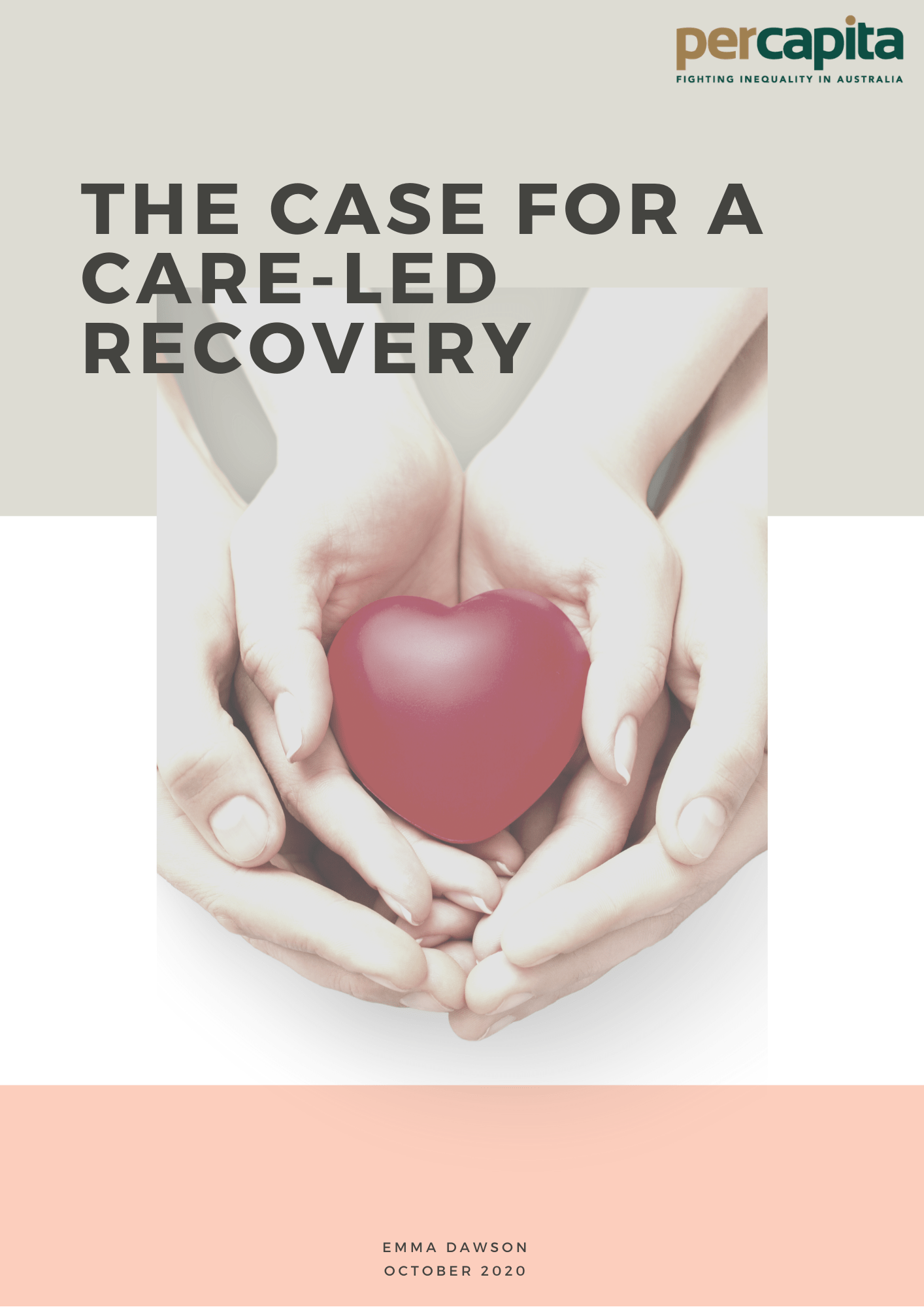Executive summary
COVID-19 has exposed a crisis in Australia’s systems of social care, for the elderly, for children and for people with disabilities.
At the same time, women have been disproportionately affected by the loss of jobs and hours of work as the most severe recession in a century has had an immediate impact on many jobs in the services sector, a not inconsiderable number of which are unlikely to return.
Despite this, government policies in response to the pandemic and associated recession so far have overwhelmingly favoured male-dominated industries such as construction and manufacturing, displaying a traditional bias to investment in hard infrastructure and the jobs that create tradeable goods, over social infrastructure and the growing number of jobs that provide services.
This paper argues for a significant government investment in the care economy, to create jobs for women, to improve the pay and conditions of essential care workers already in the system, and to improve the quality, affordability and accessibility of care for all Australians.
Australia spends relatively little on the provision of care as a percentage of Gross Domestic Product, when compared to other developed nations with robust systems of care. Out-of-pocket costs for child care and elder care are a barrier to access for many families, and a significant restriction on women’s participation in the paid labour force.
Drawing on recent research from the UK, this paper argues that a stimulus investment in the care economy equivalent to that made in construction will reap greater rewards for the nation, both in terms of jobs created, especially for women, and in the improvement in the quality of care we provide to our most vulnerable citizens.
The paper outlines the structural failings within Australia’s systems of social care, and examines why care work remains undervalued and underpaid. It links the systemic failure to value care work with the devastating outcomes in aged care revealed through the recent COVID-19 crisis, and argues for a rebalancing of economic values to ensure that reproductive labour is adequately recognised and rewarded.
As we rebuild our economy in the wake of COVID-19, we have the opportunity to fix broken systems, and to rethink what we value as a society, and what kind of country we want to be. Rather than a gas-fired recovery, this paper argues for a care-led recovery, in which we focus on the things that really matter to Australians: the health and wellbeing of their families and communities, the time they have to spend with one another, the security of their work and the recognition of the value we find in caring for one another.
We need a new social compact for Australia, centred on the concept of care: care for each other, care for our communities, care for our environment, care for our future.
This can and should begin with an investment in the care economy.

